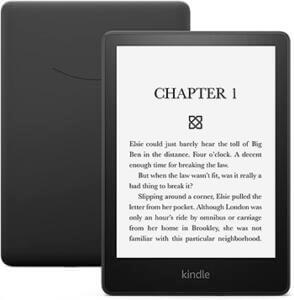 After Labor Day in North America, the internet is flooded with new products and holiday sales. Retailers worldwide are preparing for the last quarter of the year, with technology taking center stage. This includes video games, digital watches, virtual reality headsets, and mobile devices.
After Labor Day in North America, the internet is flooded with new products and holiday sales. Retailers worldwide are preparing for the last quarter of the year, with technology taking center stage. This includes video games, digital watches, virtual reality headsets, and mobile devices.
Finding products that best suit your needs can be daunting with the choices available. Many people rely on product reviews, descriptions, and specifications on the manufacturer’s website. However, if you’re not tech-savvy, you might ask yourself, “What does that mean? I know what an E-reader is, but what features should I consider when deciding which one is right for me?”
The best way to purchase any digital device is to understand the technology behind the product. When it comes to e-readers, here are the key things you need to know:
E-readers look like tablets but have limited features like reading, notetaking, and web browsing using E-ink technology. The display is similar to older computers that mostly display text and cartoon-like images. Developed by MIT scientists, E-ink became popular when Kindle started using it as the technology behind its readers. In its simplified form, E-ink is a technology that uses black and white capsules to create a display that mimics a book when charged with electricity. It only uses power when something changes on the screen. As a result, it does not require huge amounts of battery power. This is the reason behind the e-reader’s notorious long battery life.
Tablets use liquid-crystal displays (LCD) that light the device from the back or side panel. The crystals do not produce light therefore, they require ambient light or a special light source for display. This creates a huge drain on battery power. Every cell phone user knows that phones require constant charging.
If you only want to use the device for reading, surfing, and notetaking, a device with E-ink technology is the most practical and inexpensive choice. It looks and feels like reading a book and offers a more immersive experience. E-reader displays are easier on the eyes when used for long periods. For gamers and other heavy app users, a tablet is recommended. The display on the tablet is more colourful and dynamic but can strain your eyesight with prolonged use.
 Once you have decided which technology is best for you, you can break the choice down to brand or model. Having some knowledge about key features and prices helps narrow down your picks.
Once you have decided which technology is best for you, you can break the choice down to brand or model. Having some knowledge about key features and prices helps narrow down your picks.
Most modern digital readers come with 8GB of storage space or about 6000 books. For an additional fee, some models store up to 32GB, but it is unlikely that the average reader will need more than 8. Too many books will create clutter on your device.
Colour, design, weight, and size vary by brand and model. The choice depends greatly on personal preferences because these do not significantly affect the overall usage of the device. However, for travelling a 6 to 7-inch lightweight model is more manageable because it can easily fit into a pocket.
Now that you have gained knowledge and read reviews about the product, you can narrow your choices to a few favourites. In the end, the choice always comes down to affordability. Remember, affordability is not always based on price alone. If the device is not sturdy or waterproof, you may have to change devices often. In this matter, you should consider the person who will use the device. Are they responsible? Do they lose things? How do they treat their belongings?
Regardless of the final choice, wait until you get the best deal or discount. Don’t spend money if you plan to upgrade shortly. It might be more practical to wait for a new release as this pushes the price of older models downward.
Writing has always been her passion and a voice for those who cannot speak. She considers herself fortunate to write every day and says her mantra is, "I drink coffee, write, and I know about people and technology." Her writing is diverse and can be found online on websites like LifeHack, You Have a Calling, Medium, TechCrunch and, She Knows.

